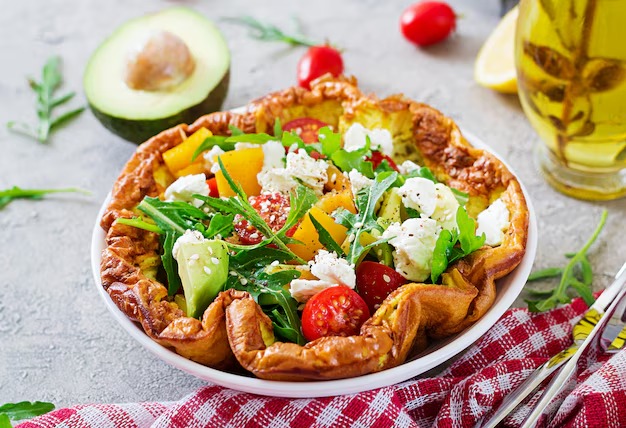Food for a Modern Lifestyle
In today’s fast-paced world, the way we approach food has evolved dramatically. Gone are the days when meals were solely about sustenance. Now, food is a reflection of our values, schedules, and aspirations. Balancing convenience, health, and sustainability has become a cornerstone of the modern lifestyle. This article explores how to navigate this landscape, offering practical tips and insights to help you make informed choices.
The Shift Toward Convenience Without Compromise
Modern life is busy. Between work, family, and personal commitments, finding time to prepare elaborate meals can feel like a luxury. However, convenience doesn’t have to mean sacrificing quality. Meal kits, pre-chopped vegetables, and ready-to-eat salads are just a few examples of how the food industry has adapted to meet the needs of time-strapped individuals.
For instance, consider the rise of grab-and-go options at grocery stores. These offerings often include fresh, nutrient-dense ingredients, allowing you to assemble a balanced meal in minutes. Brands have also begun to focus on transparency, clearly labeling products with their nutritional content and sourcing information. This shift empowers consumers to make quick yet informed decisions.
Actionable Tip:
Stock your pantry with versatile staples like quinoa, canned beans, and frozen vegetables. These items can be transformed into a variety of meals with minimal effort, ensuring you always have a healthy option on hand.
Health-Conscious Choices in a Busy World
Health is a top priority for many, but the modern lifestyle often presents challenges in maintaining a balanced diet. Processed foods, while convenient, can be high in sugars, salts, and unhealthy fats. The key is to find a middle ground that aligns with your health goals without requiring hours in the kitchen.
One emerging trend is the popularity of plant-based diets. Whether you’re fully vegan or simply looking to incorporate more plant-based meals, options like lentil pasta, tofu, and nut-based cheeses have made it easier than ever to eat healthily. Additionally, fermented foods such as kimchi and kombucha are gaining traction for their gut health benefits, offering a simple way to boost overall well-being.
Actionable Tip:
Plan your meals for the week ahead. Dedicate one day to prepping ingredients like roasted vegetables, cooked grains, and marinated proteins. This small investment of time can save you hours during the week and help you stick to your health goals.
Sustainability: A Growing Consideration
As awareness of environmental issues grows, so does the demand for sustainable food options. From reducing food waste to choosing eco-friendly packaging, consumers are increasingly mindful of their impact on the planet. Brands are responding by offering products that align with these values, such as plant-based proteins and locally sourced produce.
For example, many grocery stores now have bulk sections where you can purchase grains, nuts, and spices without excess packaging. Similarly, apps and services that connect consumers with surplus food from restaurants and markets are helping to address the issue of food waste. These innovations make it easier to adopt a sustainable approach to eating without overhauling your lifestyle.
Actionable Tip:
Start small by incorporating one sustainable habit into your routine, such as composting food scraps or choosing products with minimal packaging. Over time, these small changes can add up to a significant impact.
The Role of Technology in Modern Eating
Technology has revolutionized how we interact with food. From recipe apps to online grocery delivery, digital tools have made it easier than ever to plan, purchase, and prepare meals. For example, apps that offer personalized meal plans based on dietary preferences can help you discover new recipes and streamline your shopping process.
Social media has also played a significant role in shaping modern food trends. Platforms like Instagram and TikTok are teeming with culinary inspiration, from quick breakfast ideas to elaborate dinner recipes. While the sheer volume of content can be overwhelming, it also provides an opportunity to explore new cuisines and cooking techniques.
Actionable Tip:
Use a grocery app to create and organize your shopping list. This can help you stay focused at the store and avoid impulse purchases, saving both time and money.
Conclusion: Crafting a Balanced Approach
Navigating the complexities of food in a modern lifestyle requires a blend of convenience, health, and sustainability. By making intentional choices and leveraging the tools and resources available, you can create a diet that supports both your personal goals and the needs of the planet. Whether you’re experimenting with plant-based meals, reducing food waste, or simply finding ways to save time in the kitchen, small changes can lead to big results. Food is no longer just fuel—it’s a reflection of who we are and the world we want to live in.



